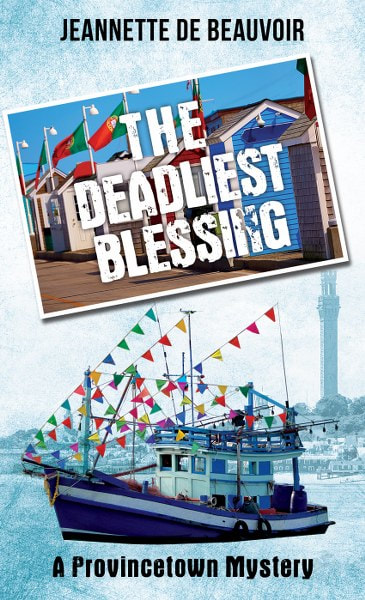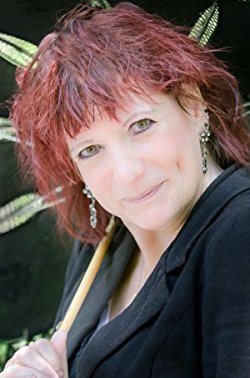Nicolaus of Damascus
Learning from 40 AC Book Bios “Καῖσαρ” Kai-Caros (in Slavic "Like the King") Bio of CaesarArt, Education, Symbols and Signs, Power of Mind, Quotes
Sclaveni pre Byzantine Cultural Influence
By Nataša Pantović
Ancient Europe's Cultural Heritage
Europe has passed through a process known in history as “Romanization” that changed indigenous populations, including Roman speech, Roman religion... The historical moment of the Roman conquest has profoundly structured the interpretation of the archaeological remains dating to between 200 BC and 300 AC.

Xanthos now Turkey 39 BC Ancient Greek Tomb British Museum London
Moving deeper into the past, archaeological remains provide evidence for existence of Ancient Europe pre Christ, with major ethnic groups, such as the Germans, the Slavs and the Celts, in prehistory. In Europe, the ancestral remains of various European peoples, help us distinguish between ‘Dorian culture’, ‘Mycenian culture’, ‘Danubian culture’ observing the beauty of the European mixed heritage.
The archaeology of countries where European powers have implemented various forms of institutionalized dominion for considerable periods of time, struggle to identify “own” history: Malta with its Ancient Temples Culture after the Knights, the UK in Ireland, Germany and Turkey in Balkans, both Irish and Slavs are still finding their rightful space in Ancient Europe’s history.
The "imperialist" archaeologies, for instance, deny of any ongoing relationship between living Australian Aborigines and their past which is defined as ‘prehistoric’ and ‘dead’. Israeli archaeology pre Christ is often classified as nationalist. A complex relationship between history, religion, archaeology and the construction of particular cultural identities is often confusing.
Claiming own historical heritage was for some nationalities a troublesome process
Slavs were slaves in Europe, and as such have been traditionally historically identified with Germans, or with Barbarians, even though a Slavic DNA story will tell you a different story of Balkans, that in its mountains, hid first Slavs (Sclaveni) that inhabited Europe. We try to trace them by names.

Ama Dios Notebook
A complex, extensive and often overtly political in nature, without a wish to offend, archaeology today, fights the core mythological lies of various religions
Giving the full respect to our scientists, it is the fact that the “European”, as “Latin” and North American culture history has been ‘exported’ around the world. It is the basis of our historians’ current mind-sets. The original texts in Ancient Greek about gods narrate most interesting new stories.

Greek NF MG 32, a palimpsest manuscript from the New Finds, St. Catherine's Monastery of the Sinai, Egypt
Internal cultural change and innovation has always been a slow and gradual process amongst most cultural groups. Back in time, 4,000 years, some of the major city centres were leaders of innovation and change. This was RARE in history, so coming across the giants like Babylon, or Ancient Egyptian Cairo, or Ancient Greek Athene, or Ancient Cyprus, or Ancient Malta, or ancient Danube culture, where a cultural group settled for 1,000+ years has created miracles, where writing, science, sports and art flourished, creating pockets of knowledge about micro and macro cosmos, later to be explored during the Age of Enlightenment, and now, post electricity, 4,000 years later, by us, consciousness researchers who wish to dig deeper.
Nicolaus of Damascus Book Bios “Καῖσαρ” KaiCaros (in Slavic "Like the King") Bio of Ceazar
The Ancient Greek historian Nikolas or Nicolaus of Damascus (Greek: Νικόλαος Δαμασκηνός) was a historian and philosopher with a Slavic name who lived during the Augustan age of the so-called Roman Empire. He was born in 64 BC.
He was an intimate friend of Herod the Great (Cezar). According to Sophronius, he was also the tutor of the children of Mark Antony and Cleopatra. He was commissioned for his work. He wrote a universal history in 144 books. His work was mainly lost. Extensive fragments of the first seven books are preserved, these cover the history of the Assyrians, Medes, Greeks, Lydians, and Persians.
The Book 4 of his History was on A-bra-Ham (the monotheism, the Monad), so the historians have named him “a Jew”. However, he has done a work called “On the Psyche”, so he could have also been a Pythagorean or Platonist.
Nikolas wrote "A Life of Augustus", Caesar (Bios *“Καῖσαρ” KaiCaros = pronounced as “Bios kai Caros”)
Nikolai writes the name of Cezar, in Ancient Homerian Greek as “Καῖσαρ” “Καίσαρος”, “Καίσαρι” sounding as: Kai Caros (meaning in Slavic "kao Car", or "as the King", the Slavic supreme ruler is “Car”) “Καίσαρ” became in Latin "Cezar".
Excerpts from Nicolaus
"Caesar had by this time completed the wars in Europe, had conquered Pompeius in Macedonia, had taken Egypt, had returned from Syria and the Euxine Sea, and was intending to advance in to Africa."
"Caesar wished Octavius (the next Caesar) to have the experience of directing the exhibition of theatrical productions (for there were two theatres, the one Roman, over which he himself had charge, and the other Greek). This he turned over to the care of Octavius."
"He fell, under many wounds, before the statue of Pompeius, and there was not one of them but struck him as he lay lifeless, to show that each of them had had a share in the deed, until he had received thirty-five wounds, and breathed his last."
“There was a crowd, too, in the theatre, which got up and rushed out in disorder (there happened to be a gladiatorial exhibition in progress) knowing nothing definite of what had happened but frightened by the shouting all about them. Some said that the Senate was being slaughtered by gladiators, others that Caesar had been murdered and that his army had started to pillage the city; some got one impression, others another.”
"...carrying their swords bare and shouting that they had acted in behalf of common freedom. A great crowd of gladiators and slaves, who had been prepared for the purpose, followed them. There was much running in the streets and through the forum, now that the news that Caesar had been murdered became known to the throng. The city looked as if it had been occupied by an enemy.”
“Even the city treasury, which his father had filled with funds, they had emptied within two months after Caesar's death, wasting money in large lots on any excuse that offered in the general confusion; and furthermore they were on good terms with the assassins. So Octavianus was the only one left to avenge his father, for Antonius let the whole matter pass, and was even in favour of an amnesty for the assassins.”
On the Psyche - An Arabic translation of his work De Plantis, once attributed to Aristotle, was discovered in Istanbul in 1923. It also exists in a Syriac manuscript at Cambridge.
He is the first one to narrate of a sramana (a Gypsy from India) who burnt himself alive in Athens to demonstrate his faith. A tomb was made to the sramana, still visible in the time of Plutarch, with an inscription "ΖΑΡΜΑΝΟΧΗΓΑΣ ΙΝΔΟΣ ΑΠΟ ΒΑΡΓΟΣΗΣ" (In Slavic: Za roman Čergaš, Indos apo Vargoeše), for a Gypsy (RamaN) from Xegas (Chergash), an Indian from Vargosha. Interestingly, in Serbia, we still call all the gypsis Chergaši...
“Eight naked servants, with girdles round their waists, and fragrant with perfumes, presented the gifts which were brought. The presents were a Hermes (i. e. a man) born without arms, whom I have seen, large snakes, a serpent ten cubits in length, a river tortoise of three cubits in length, and a partridge larger than a vulture. They were accompanied by the person, it is said, who burnt himself to death at Athens. This is the practice with persons in distress. On his tomb was this inscription: ΖΑΡΜΑΝΟΧΗΓΑΣ ΙΝΔΟΣ ΑΠΟ ΒΑΡΓΟΣΗΣ
ZA-RMANO-CHEGASH,, for a “Roman”, “Gypsy” Chergash, an Indian, a native of Vargosha.
During his time in Babylon

Speach of the King Babylon 2500 BC Church Ritual
An enormous amount of knowledge passed to us, researchers of Babylon, through the most ancient carved in stone Akkadian letters about the names of Kings, countries, religions, numbers.

Museum Louvre Paris France Obélisque de Manishtusu Akkadin Babylon 2,270 BC
The Greeks mythology learned from the Babylonian one, of Egypt, 2,500 BC, and this one was influenced by Cyprus, Malta, Serbian Vinča, the Danube-an culture. The Supreme “0” θ
Babylon God Male Name Female Element Child
Ea (Ancient Greek for goddess θεa) DaM-kina (in Slavic oD Majkina) Samas ς *C (Serbian female names follow this pattern Zori-Ca, Veri-Ca, Mili-Ca, and the Queen in Slavic is Cari-Ca * or Crkva that means Church). Following this pattern one of the S of Samas is actully σ or "C"
BeL (Bel = “white” in Slavic) BeLTiS (bel-ti-si “white you are”) SiN (in Slavic “son”), moon
Bel or Bog in Slavic, meaning “white” in Slavic, God in English, the Zeus of the Greeks (θεὸς or Δίὸς ) and Dios of the Catholic Roman Church.
- The Tao of Logos
Have you seen the oldest preserved Gospel of John found in Egypt 200 AC? It took me ages but I did go line by line comparing the old Greek text to - Metaphysics of sound
True Name of god and Ancient symbols and frequencies Pulsation, vibration, rhythm exists everywhere as Akasha / Sound / Waves and we hope to reach...

 Log in with Facebook
Log in with Facebook 




















